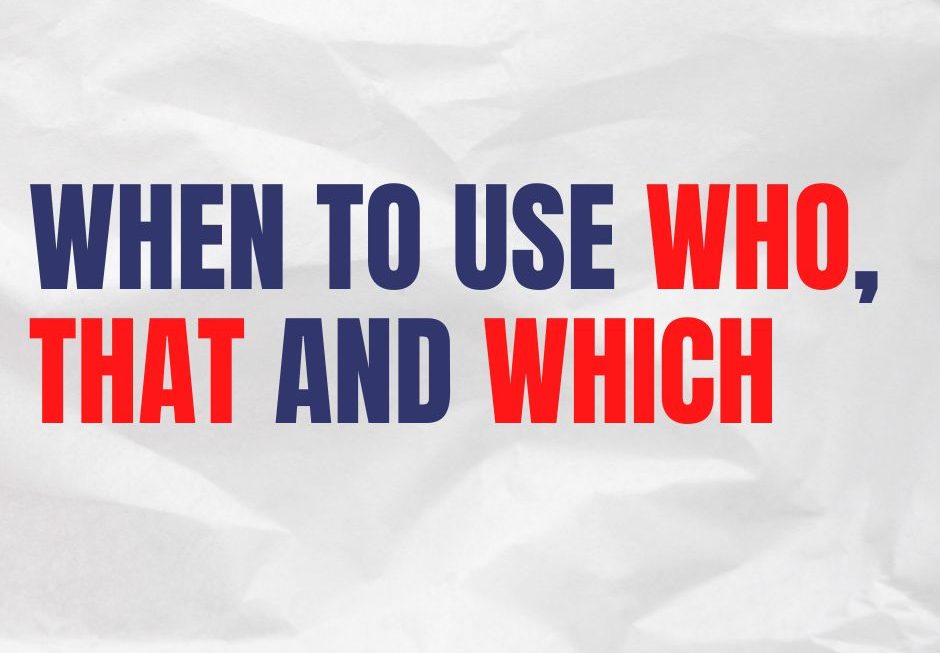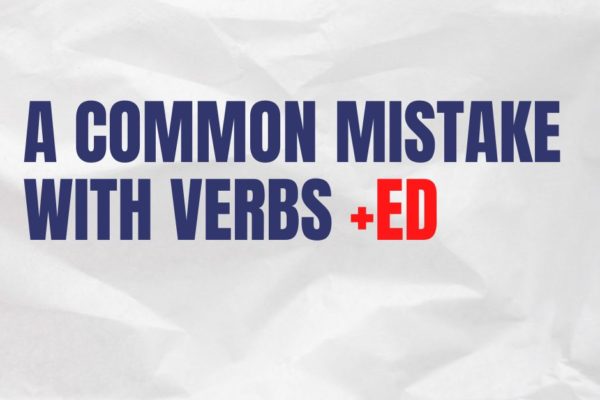Who and that are used for people. That and which are used for things. Which cannot be used for people. To understand when to use them in a sentence we should understand relative clauses. What are relative clauses A relative clause is a sentence within a sentence which is related to the main sentence. I […]
21 Verbs With Prepositions For Intermediate Students [Learn Them With The Quiz]
Some English verbs have certain prepositions. So it makes sense to learn them and always use these verbs correctly. FOR waiting / I’m waiting for your call. apply / She applied for the job. ask / It’s okay to ask for help. prepare / I need to prepare for the trip. TO listen / She […]
A Common Mistake English Students Make With Verbs+ED
As we know in the past tense regular verbs end with ED: work-worked dance-danced Although sometimes it’s not clear how to pronounce this suffix. Many students tend to pronounce -ED as ‘eed’ or ‘eet’. So, ‘worked’ sounds like ‘workeet’. In reality, it’s pronounced as ‘ɪd’ only after T or D. ‘guided’ – /gaɪdɪd/ ‘knitted’ /nɪtɪd/ […]
4 Writing Tips From Grammar Girl For English Learners
In her recent episode, Mignon Fogarty, also known as Grammar Girl, shared some useful writing tips. She gave some specific advice to English learners. Here’s a quick recap: 1. Watch and read ”the right type of materials” that are more likely to contain standard English: – news – documentaries – educational programs 2. Research the […]
“Bored” vs “Boring”: What’s the Difference
“Bored” and “boring” are both adjectives that describe something that is not interesting or exciting. But they are used differently. ? If you watched a movie that wasn’t interesting, you can call it ‘boring’. ? If you want to describe how you feel about it you can say that you ‘were bored’ or ‘got bored’ […]
TOP-8 Free Grammar Checkers: Learn Which One Is the Best for You
There are plenty of free grammar checkers on the internet, and it’s not always clear which one to choose. In this review, I cover the eight most reliable grammar checkers, their features and options, so you can understand which fits you.
“I agree” vs “I’m agree”: Which One Is Correct
Using “I’m agree” instead of “I agree” is a common mistake among my Elementary and Intermediate students. I decided to write this post to clarify the usage of the verb ‘agree’. 1. “I agree” I agree is the correct usage of the verb ‘agree’ in Present Simple Tense. Agree is a verb that means to […]


![21 Verbs With Prepositions For Intermediate Students [Learn Them With The Quiz] 21 Verbs With Prepositions For Intermediate Students [Learn Them With The Quiz]](https://about-english.com/wp-content/uploads/2023/03/verbs-with-prepositions-600x400.jpg)



